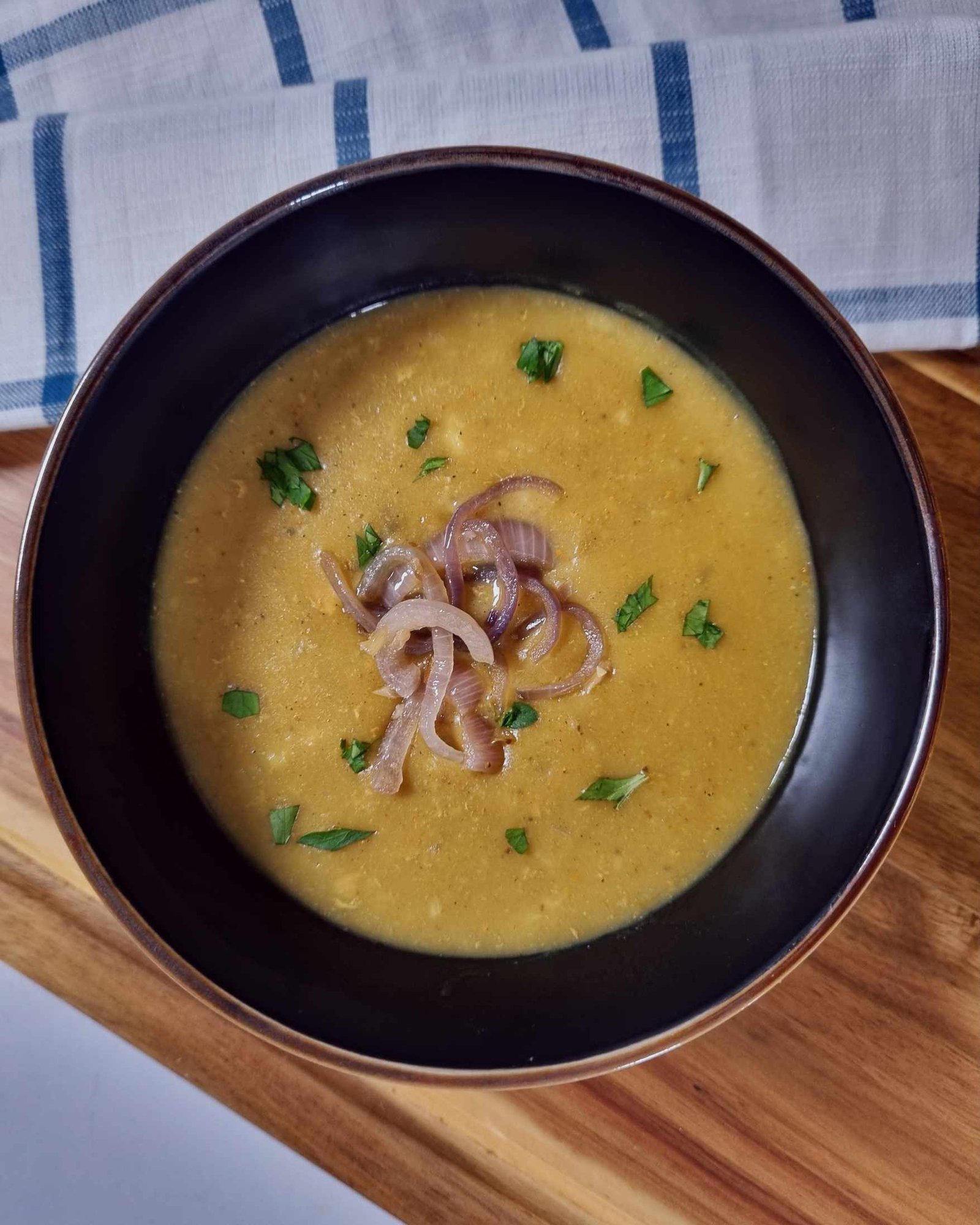
Newsletter Subscribe
Enter your email address below and subscribe to our newsletter

Enter your email address below and subscribe to our newsletter
Haleem is a dish with a rich history, initially called ‘Harisa‘. It is now known as Harees in the Gulf countries. This incredible dish was originally made with a handful of ingredients. Over time, the recipe changed as it crossed to new cultures. The story of ‘Haleem’ is a fascinating one.
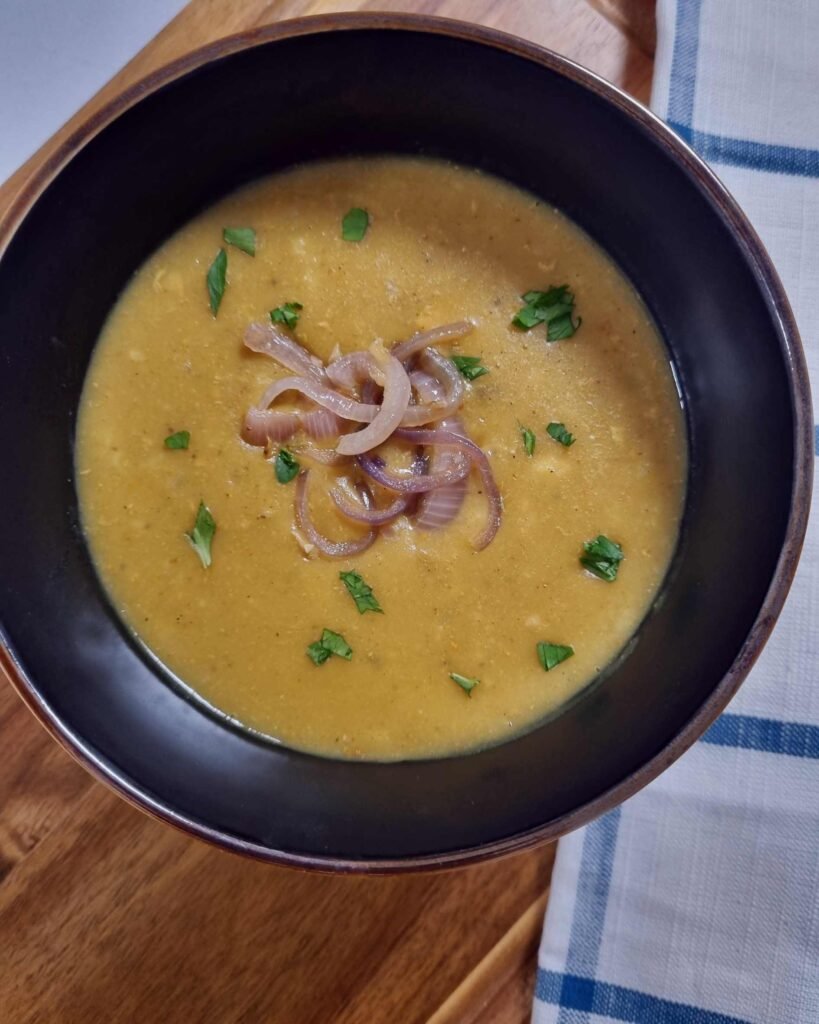
Around 1000 years ago, the Arabs conquered and expanded into new territories. In these expeditions, they travelled far into Persia. It was at that point that the Arabs discovered wheat and barley. Persian agricultural practices included wheat along with other grains. The Arabs were inspired, and they began to cultivate this grain on their irrigated lands. It was in that period that ‘Harees‘ was created; it was made with a labour of love. The Arabian women lovingly cooked the wheat along with meat for many hours, resulting in a lightly seasoned porridge that was served at family gatherings.
When the Persians were introduced to this recipe, they quickly created their own version, called ‘Halim’, which was made with wheat, meat, cinnamon, and a small amount of sugar. It is still a popular breakfast recipe. Word soon spread, and the Indians discovered Halim through the Persians, or ‘Harees‘ through the Arabs. As a result, the Indians created ‘Haleem’, which is made with wheat, meat, lentils, spices, and chilies.
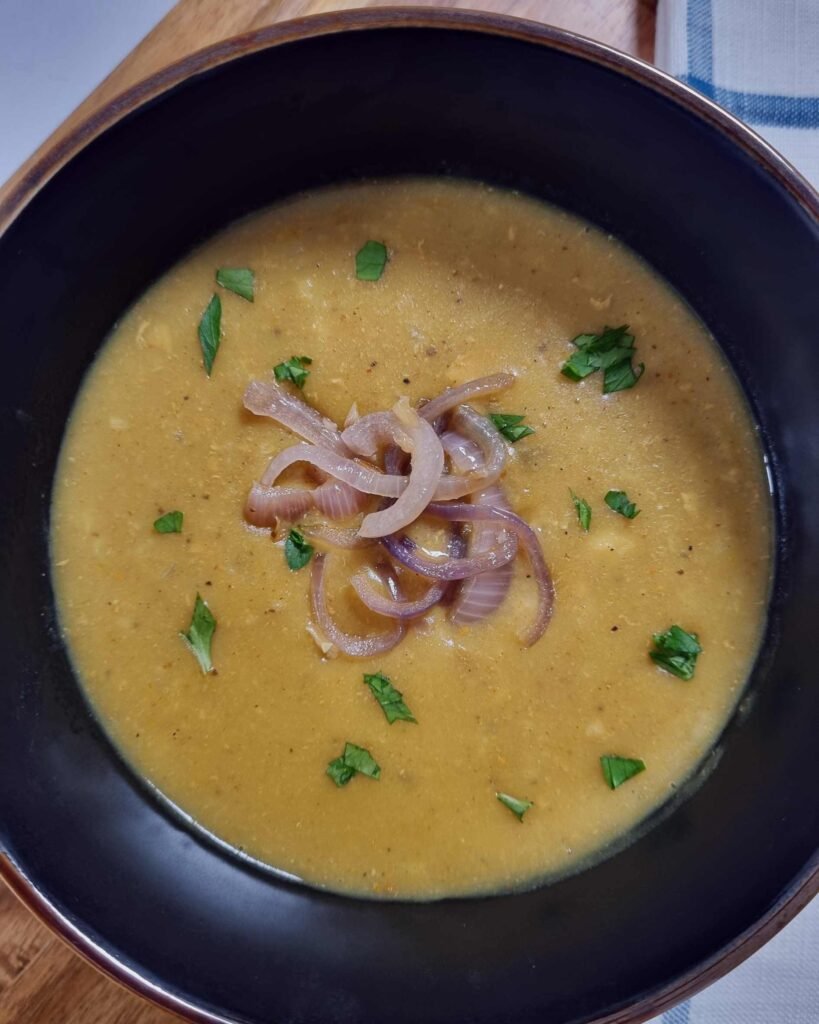
In this recipe, we are creating the Indian variation of this recipe; however, we are also adding barley, which the Indians do not add to their ‘Haleem‘. The Persians and the Afghans both use barley in their ‘Halim‘. In time, we will also add the recipes for ‘Arabian Harees‘ and ‘Persian Halim‘ to The Taste Journal. Keep an eye out for those recipes.
Chicken, Onion, Garlic, Water, Barley, Lentils, Cracked wheat, Mung split peas, Cumin, Garam masala, Chili powder, Salt, Turmeric powder, Lemon juice, Parsley, Fried onions.
We’ve chosen to use chicken in this recipe, you can use lamb, beef goat or camel for this recipe. Chicken thighs with bone-in offers a lot of flavour to this dish, whereas chicken breasts add more protein and its convenient for those type of individuals that prefer the smaller pieces of protein as compared to the ones that have chicken bones. You can also chop up a whole chicken for this recipe.
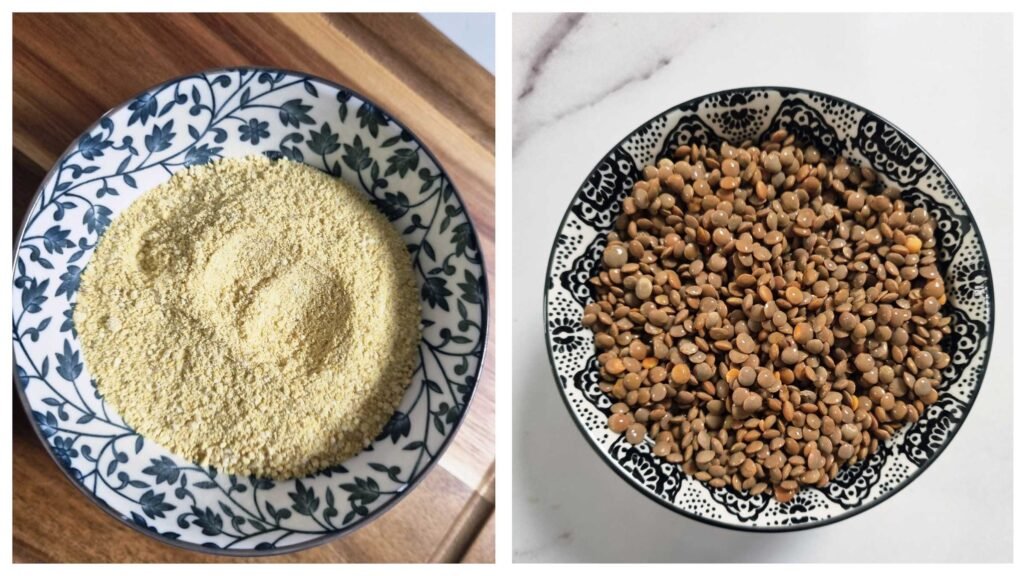
Onion and garlic add a savoury flavour, it is important for these ingredients to be caramelized as it adds a nutty sweetness to this dish. Barley, lentils, cracked wheat and ground mung split peas are the grains that are added into this recipe. The barley and cracked wheat adds substance to this dish, whereas the lentils add protein.
The ground mung split peas act as a thickening agent for this recipe. You can purchase whole mung split peas and blend it using a spice blender or a coffee grinder. This recipe is a high protein recipe, it provides a lot of nutrition, and that is why it is popular as a breakfast dish. Cumin, garam masala, chili powder and turmeric add flavour. Lemon juice, fried onions, and parsley are optional garnishes. However, adding lemon juice enhances the flavour and brings out the authentic taste of the soup.
Slice the onions and mince the garlic. Then, rinse the chicken in water, remove the skin, and cut the chicken breast into bite-sized cubes. Using bone-in chicken thighs add a lot depth to this soup. Chicken bones have a ton of collagen and when it is released into the soup, it adds a rich flavour to the dish.
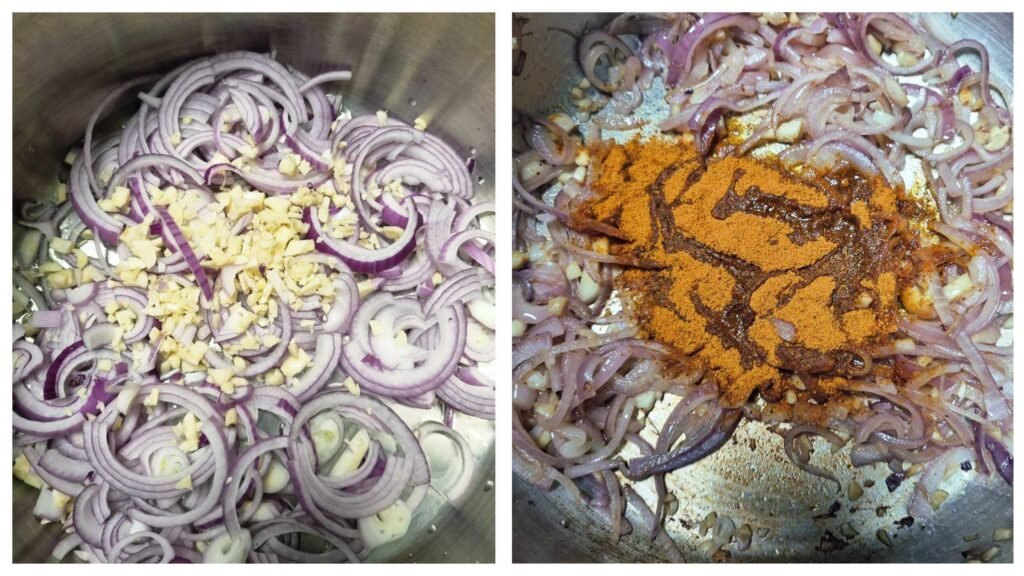
Peel the ginger and cut it into large pieces that are distinguishable from the chicken cubes. Thoroughly rinse the lentils and remove any impurities. Also, rinse the barley several times and remove the husks that float to the top of the water.
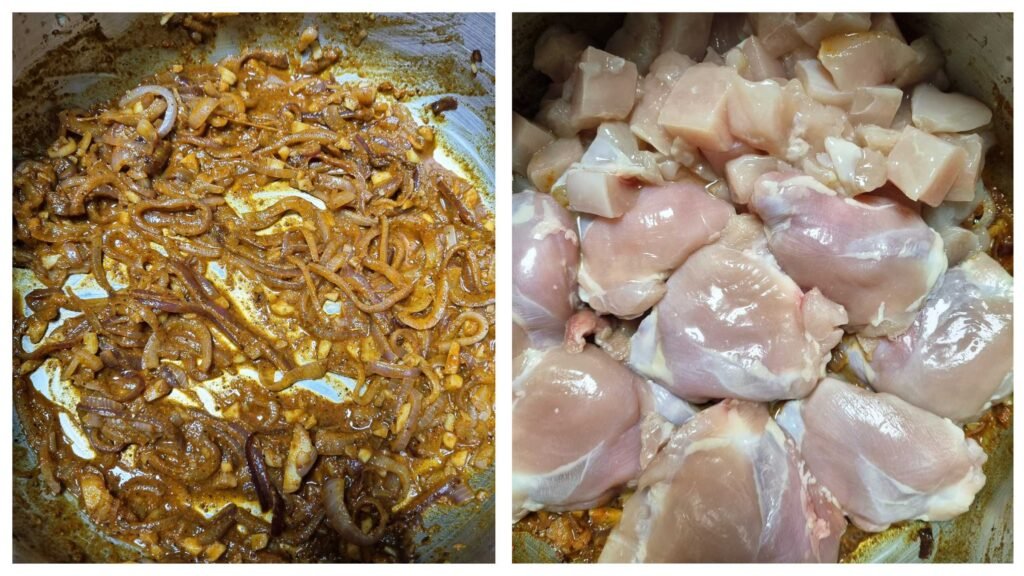
Preheat a pot to medium-high heat. Drizzle a generous amount of cooking oil into the pot, add the onion and garlic, and stir to mix the ingredients. In this recipe, three tablespoons of ghee can be used as a substitute for the cooking oil. Sauté the onions and garlic for six minutes and stir every twenty to thirty seconds. Pay attention when the onions start to become translucent, because that is when the onion begins to brown. Stir the onions every five to ten seconds, remove some of the onions to use as garnish. (Optional)
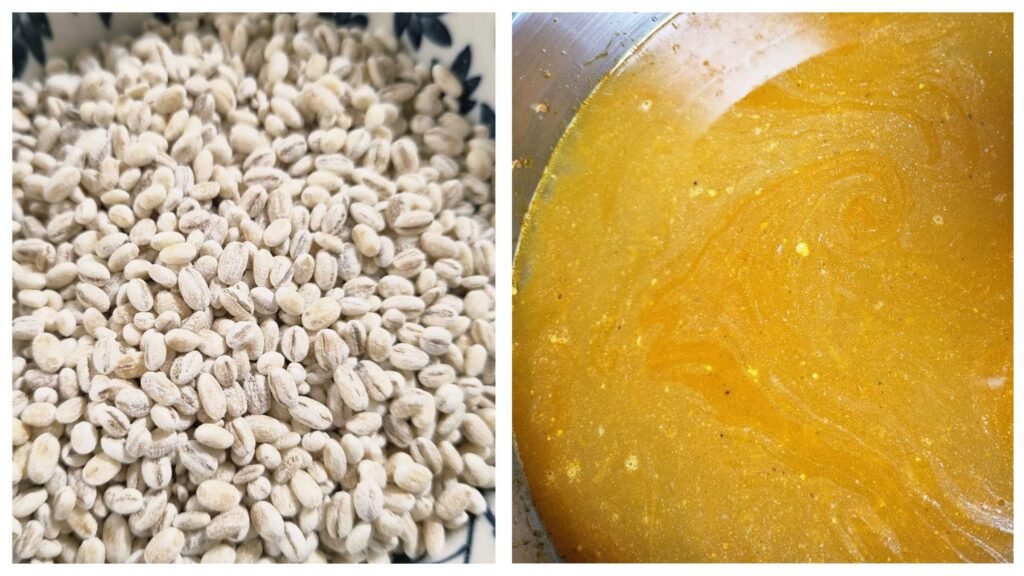
Adjust the temperature to low when the onions begin to brown. Add the Haleem spices, two tablespoons of cooking oil, and a half cup of water. Thoroughly stir everything so the spices are evenly spread out in the pot. The water will quickly reduce in amount as some will evaporate and some will be absorbed by the spices. Bring the temperature back to medium-high and add the prepared chicken to the pot. Toss the ingredients from bottom up to coat all the chicken with the spices. While doing so, continue to cook the chicken for about three minutes or until all the surface of the chicken has turned white.
Add three litres of water to the pot and close the lid to speed up the boiling process. Increasing the temperature to high will also bring the soup to a boil much faster; however, be sure to lower the temperature once the broth starts to boil. Add the prepared lentils and barley into the pot. Add the grains, whilst gently stirring the ingredients.
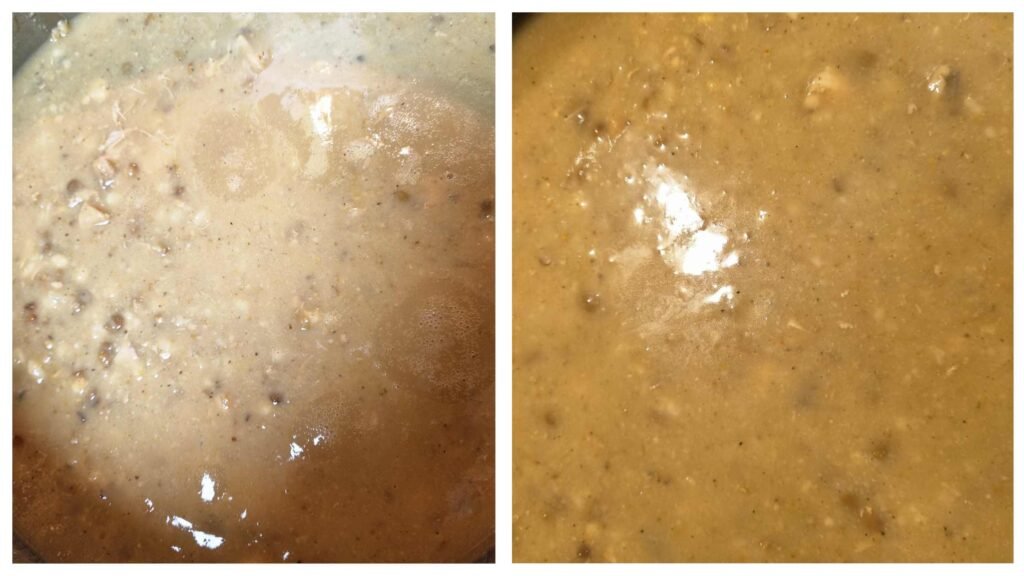
Adjust the temperature to low at this point and simmer the soup for 1.5 hours with the lid closed. If the water is close to the top edge of the pot, leave a slight space for the hot air to escape. Make sure to stir the pot from bottom to top every seven to ten minutes, as the grains at the centre will stick to the bottom and begin to burn. Haleem is hearty and creamy when it is fully cooked. Serve with freshly squeezed lemon, buttered bread, and herbs as garnish.
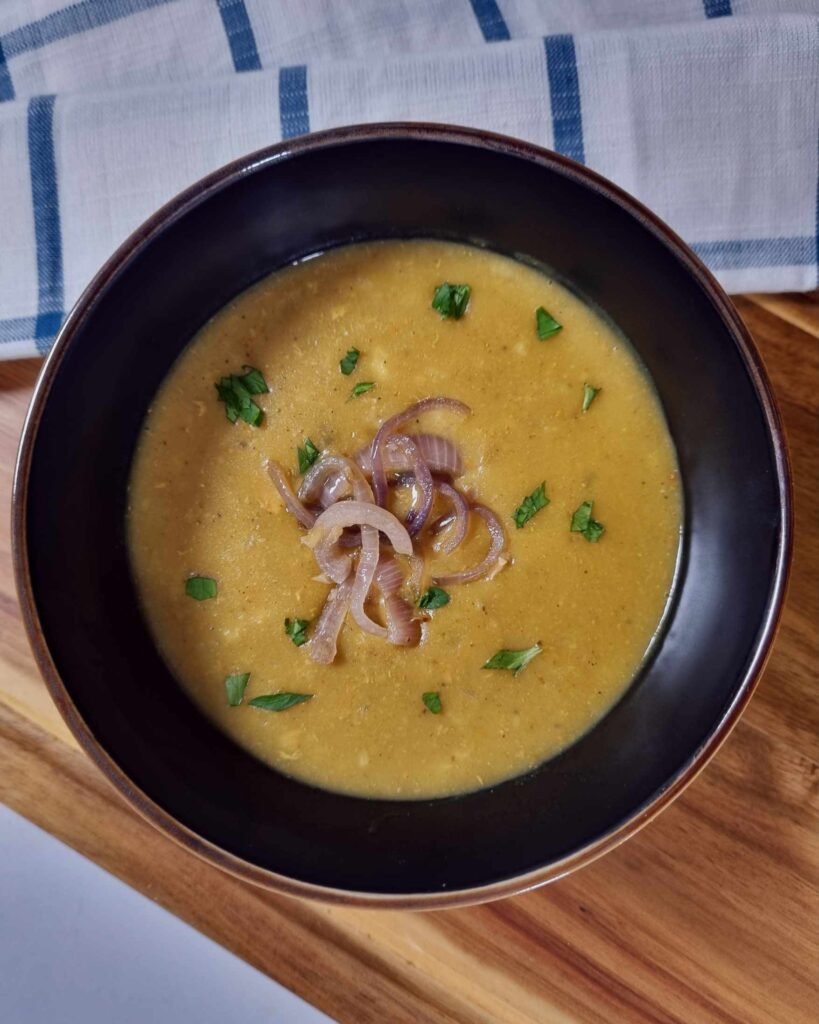
Haleem is a wholesome and hearty meal that is also nutritious and fulfilling. Adding lemon juice cuts through the rich flavour of Haleem and adds a tangy taste to the dish. The best sides to enjoy Haleem with are freshly made naan, toasted bread with melted butter, tomato, cucumber & onion salad, as well as fresh herbs like parsley.
It can be stored for up to three months. Reheating the frozen haleem is best done on the stovetop in a small pot. Set the temperature to medium-low heat, add three tablespoons of water, and reheat for seven to nine minutes while stirring occasionally.
You can store the Haleem in the fridge for up to five days. Reheating the soup can be done in the microwave for one portion; however, reheating for two to four portions should be done on the stovetop in a small pot on medium-low temperature. Add a little bit of water when reheating Haleem to prevent burning the grains, but not too much that it dilutes the soup.
